About us
Vision
To support health services to respond to extreme weather events in urban informal communities in collaboration with urban marginalised people, health systems and government actors.
Mission
To strengthen health service preparedness and delivery for urban marginalised communities before and during extreme weather events.
To understand the social vulnerabilities and health service impacts on urban marginalised people during recent extreme weather events.
To understand the preparedness of health systems during and following extreme weather events.
To work with communities, health systems and state actors to co-produce and implement research-informed interventions, and monitor and evaluate them.
To promote uptake of project learning by health system actors, communities, other stakeholders, and global health researchers.
Our team
Liverpool School of Tropical Medicine (LSTM)
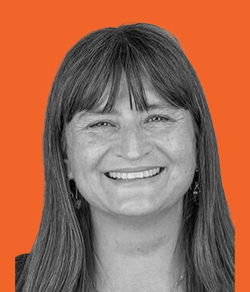
Dr Rachel Tolhurst
Dr Rachel Tolhurst is the Principal Investigator and a professor at the Liverpool School of Tropical Medicine. She has 25 years’ experience in gender equity and health systems strengthening in Africa and Asia. Her research focuses on social drivers of inequities in health and well-being including intersections between gender equity, poverty and disability, about a wide range of health issues, including TB and lung-health, antimicrobial resistance maternal, sexual and reproductive health and gender-based violence.

Dr Lana Whittaker
Dr Lana Whittaker is a Lecturer at LSTM and Research Director for Urban SHADE. Lana is a human geographer by training and her research uses mixed methods to examine inequalities and the interventions and policies intended to address them. Lana has previously researched India’s school lunch programme and the right to food, conservation policies in Nepal, and was a research associate in theARISE consortium. In addition to Urban SHADE, Lana is principal investigator on the Urban TRACS project and a co-investigator on WeSHAPE.
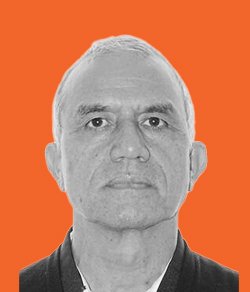
Dr Jiban Karki
Dr Jiban Karki is a global health researcher with a PhD in Public Health and a master’s in Rural Development from universities in the United Kingdom, complemented by bachelor’s degrees in civil engineering and business administration from Nepal. Over 25 years, he has held leadership positions in development organisations and managed projects in Nepal, with more than 10 years dedicated to academic research in the Global South. He founded a NGO in Nepal called Phase Nepal. He leads the Monitoring, Evaluation, and Learning (MEL) of Urban SHADE and leads a study on women’s participation in policy making processes around climate action and health in Nepal.

Dr Ijeoma Onyeahialam
Dr Ijeoma Onyeahialam is an interdisciplinary social scientist with a background in Health Geography and mixed methods research. Ijeoma explores the impacts of climate change and extreme weather events—particularly on displacement, health services delivery, infectious diseases, mental health, trauma, and financial wellbeing—among underserved populations in low- and middle-income countries --using participatory and community-engaged approaches. She is also interested in how innovation in the form of technology can support resilience, recovery, and adaptation through micro-level, place-based interventions.

Faye Moody
Faye Moody works as a Programme Coordinator across the Gender and Health Group and Community Health Systems Group. Faye has twelve years’ experience within the department of International Public Health at Liverpool School of Tropical Medicine, working on many research projects across Africa and Asia working with many different funders.
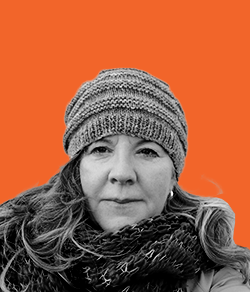
Sue Grice
Sue Grice is a Programme Administrator working on the Urban Shade and Urban TRACS programmes. During her time at LSTM, she has worked on other projects covering Antimicrobial resistance, Gender Equity and Inclusion, Environmental Surveillance and Climate Adaptation and Resilience. She is working in partnerships across Europe, Asia and Africa with funders such NIHR, FCDO, IDRC, Gates and The British Academy.
The George Institute, India

Dr Surekha Garimella
Dr Surekha Garimella is a Senior Research Fellow at the George Institute India. Surekha holds a Bachelor's degree in Nutrition, a Master of Science in Nutrition & Food science, a Master of Philosophy in Applied economics, and a PhD in Public Health, Gender and Work. Her research interests are in gender, women, work and political economy; Gendered health systems and accountability; feminist theory and practice and ethics of research practice. She has worked in implementation and research in gender, nutrition, health and wellbeing among women, children and adolescents in informal urban settlements in Delhi and Tamil Nadu as well as research on the health and wellbeing experiences of women workers in urban informal settlements in Delhi.

Inayat Singh Kakar
Inayat Singh Kakar is responsible for the research work at the field site in Shimla, India. Inayat has seven years of experience working in qualitative research and advocacy in maternal health, noncommunicable diseases, private sector regulation and health systems strengthening. In previous research roles, she has worked with health systems to ensure translation of research into policy, and policy into practice through intervention research.

Malini Aisola
Malini Aisola is a Senior Research Fellow at The George Institute. Previously, she has worked with Knowledge Ecology International, Lawyers Collective, Public Health Foundation of India, Oxfam India, Third World Network. She is a co-convenor of the All India Drug Action Network and is associated with civil society networks working on improving access to medicines and healthcare.

Hemanth Chandu
Hemanth Chandu is a Research Officer at the George Institute Project. For the Urban Shade project, he works closely with urban marginalised communities in the cities of Guntur and Vijayawada in Andhra Pradesh. He worked with the ARISE hub project earlier that aimed at improving accountability and governance mechanisms towards urban marginalised groups. He holds a Master’s degree in Public Policy and Governance from Azim Premji University in Bengaluru and holds an engineering degree. His research interests lie in understanding social determinants of health and inequities in historically marginalised communities.

Pavani Pendyala
Pavani Pendyala is a Research Assistant at The George Institute. She holds a Bachelor of Science in Biology and a Master of Arts in Development (specializing in Public Health) from Azim Premji University, Bengaluru. Her research interests include neglected tropical diseases (NTDs), health systems and policy, maternal and mental health, health communication, and the social and environmental determinants of health. She previously worked on the ARISE (Accountability for Informal Urban Equity) project, addressing vector-borne diseases in waste picking communities in Andhra Pradesh.
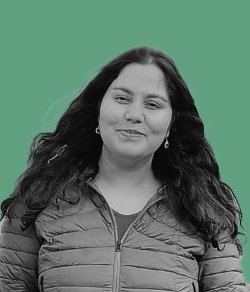
Dr Yetika Dolker
Dr Yetika Dolker is a Research Assistant at The George Institute. A dentist by training, she moved on to complete her Master’s in Public Health from PGIMER, Chandigarh. She served as a Programme Officer with Karuna-Shechen India where she worked on strengthening primary healthcare systems in Bihar. She has hands-on experience in working in underserved areas and conducted research on improving healthcare service accessibility in the remote Lahaul-Spiti and Kinnaur districts of Himachal Pradesh.

Menaka Rao
Menaka Rao is the Project Communications Officer for Urban Shade project. She is an award-winning journalist who has reported on public health, nutrition, and justice through the lens of gender rights, children rights and right to food. She has worked with several prominent publications including Indian Express, Hindustan Times and Scroll.in. She has also written for BBC, Guardian, FiftyTwo.in among others.
Sierra Leone Urban Research Center (SLURC)
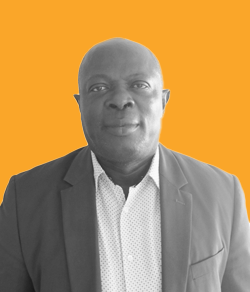
Dr Joseph Mustapha Macarthy
Joseph Mustapha Macarthy is a Co-Investigator of this project. He leads the implementation of the research in Sierra Leone. Joseph brings to this project his strong scientific background in climate change and the ability to share latest thinking on adaptation approaches. Joseph has led several health research projects including serving as a Principal Investigator on the ARISE project in Freetown, Sierra Leone.

Braima Koroma
Braima Koroma oversees the implementation of the project in Sierra Leone. Braima has undertaken many funded research projects with local and international partners related to disaster risks, climate change adaptation, governance of informal urbanisation, and participatory urban development.

Abu Conteh
Abu Conteh is a Senior Researcher at the Sierra Leone Urban Research Centre and head of the Urban Health Cluster. He supervises different research projects focusing on multiple social determinants of health, such as environmental hazards, sanitation risks and place. Abu is currently a PhD candidate at LSTM.

Sullaiman Fullah
Sullaiman Fullah is a Junior Researcher at SLURC. His interest of work lies in the areas of urban health, climate change adaptation and the resilience of communities and health systems. He holds a first-class Bachelor of Science degree in Environmental Sciences with a major in Rural Development Studies from Njala University.
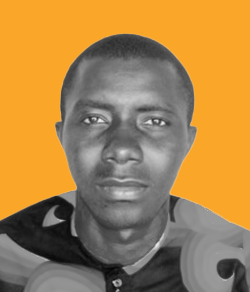
Ishmail Conteh
Ishmail Conteh is a Research Officer at the Sierra Leone Urban Research Centre (SLURC). He holds a Master of Public Health from Central South University, China, and a Bachelor of Science with Honors in Public Health from Njala University, Sierra Leone. Ishmail has been a lecturer for over three years before joining the SLURC team in 2024.

Umar Buckus
Umar Buckus completed a BSc with Honours, Construction Management at the University of the Witwatersrand (South Africa) after which he moved to London where he completed a MSc in Building Urban Design and Development at University College London. He is an Urban Designer focused on participatory policies and research in shaping global development policy using epistemologies of the Global South and Intersectionality.

Dr Sia Morenike Tengbe
Dr Sia Morenike Tengbe is a medical professional and independent researcher. She currently serves as the Monitoring, Evaluation and Learning lead for Urban Shade Project at SLURC. She has a MBChB degree from the College of Medicine and Allied Health Sciences along with a Masters degree in International Public Health from Liverpool School of Tropical Medicine. She has a proven ability to collaborate effectively with researchers, stakeholders and communities and has been published in several peer-reviewed journals.

Ibrahim Juldeh Sesay
Ibrahim Juldeh Sesay works as a Research Officer for the Sierra Leone Urban Research Centre (SLURC). He holds a first-class Bachelor's degree with honours in Rural Development Studies from Njala University, Sierra Leone, and recently completed an MSc in Translational Health Sciences from University of Oxford, United Kingdom (UK), graduating with Merit. Juldeh has over three years of experience in applied public health research, focusing on infectious disease control, health policy, climate change, and health systems strengthening. This experience has significantly informed a lot of his research interests and academic aspirations.
Slum Dwellers International Kenya

Joseph Kimani
Joseph Kimani is a highly experienced community organizer in Kenya, with expertise in civic and political rights, peacebuilding, economic development, and governance. He holds a Masters in Community Economic Development and has worked with Civil Society Organizations for over 20 years. He has a deep understanding of Kenya's informal settlements and has influenced major projects in our cities, especially the design of the community organization and public participation model for the Mukuru Special Planning Area, which aimed to benefit over 100,560 households. He is currently the Executive Director of SDI Kenya, a professional organization supporting Kenya Slum Dwellers Federation- Muungano wa Wanavijiji in championing inclusive cities.

Sarah Anyango Ouma
Sarah Anyango Ouma is a strategic and impact-driven communications specialist with over six years of experience designing and leading advocacy, digital storytelling, and multimedia campaigns across Africa’s development, climate justice, and humanitarian sectors. She holds a Master’s degree in Development Communication and is currently pursuing a PhD in Information and Communication at the University of Nairobi. She currently serves as the Communications Manager at Shack Dwellers International Kenya and Vice Chair of the Voices for Just Climate Action (VCA) Communications Taskforce.

Milka Kori
Milka Kori is an urban planner and community-based researcher working at the intersection of climate resilience, urban development, and social justice. Currently supporting work at Slum Dwellers International (SDI) Kenya, Milka has been involved in a range of projects across informal settlements, including participatory data collection, inclusive design workshops, and resilience planning. The work emphasises the value of community-led solutions and grounded approaches to urban challenges, from physical addressing systems in Mathare to climate adaptation initiatives. Milka’s broader interests lie in co-producing knowledge with communities, bridging local practice with policy, and advancing equity in African urban contexts.

Bessie Sarowiwa
Bessie Sarowiwa is a development practitioner currently working as a Program Officer (Coast region) supporting SDI Kenya’s programs in the coastal region. She has a background in communication, research and community engagement. Her work focuses on helping communities collect and use data, organize around their priorities, and engage with partners to improve living conditions in informal settlements.

Kilion Nyambuga
Kilion Nyambuga is a seasoned Urban Planner and Climate Adaptation Specialist with over a decade of experience in designing and implementing transformative solutions for informal settlements. He possesses deep expertise in urban resilience, participatory slum upgrading, and climate finance, ensuring that marginalized communities gain equitable access to resources and sustainable infrastructure. Kilion holds a degree in Urban and Regional Planning from the University of Nairobi and is currently pursuing a Master’s degree in Climate Change and Adaptation at the same university.

Michelle Koyaro Matengo
Michelle Koyaro Matengo serving as the Research Programmes Manager at SDI Kenya. She has a background in Urban and Regional Planning and Psychological Counselling, which she integrates into her work in community-led research and participatory urban planning. Michelle’s work addresses intersecting challenges including climate change, livelihoods, health, housing, and mental well-being with a strong commitment to equity and inclusion. Her training in psychological counselling strengthens her ability to center mental health and psychological resilience within climate and urban development work, particularly in vulnerable informal communities experiencing environmental stress and climatic pressures.

Jane Njoroge
Jane Njoroge is an urban Planner, GIS analyst, and researcher. She has a Bachelor's degree in Urban and Regional Planning and is completing her MSc studies in GIS and Remote Sensing. Jane’s work centres around leveraging data and community-driven planning to address challenges in informal settlements, with the aim of improving service delivery and transforming livelihoods.

Tabitha Wakesho Mwandango
Tabitha Wakesho Mwandango is the Livelihoods and Grants Manager at SDI Kenya, with over ten years of expertise in finance and grants administration. She holds a Bachelor of Commerce in Finance and is a CPA Finalist.

Christopher Kaminda Mutuku
Christopher Kaminda Mutuku is a Finance Assistant at SDI Kenya, where he supports the organisation’s day-to-day financial operations. He plays a key role in ensuring accurate financial tracking of projects by collaborating closely with program teams. He holds a Bachelor of Commerce from KCA University and is a Certified Public Accountant finalist from Strathmore University.
Centre of Dialogue on Human Settlement and Poverty Alleviation (CODOHSAPA)

Francis Reffell
Francis Reffell is PI at the Centre of Dialogue on Human Settlement and Poverty Alleviation (CODOHSAPA), Sierra Leone, providing strategic local management and leadership of the project. Francis will: work with lead and other co investigators to design methodologies; guide data collection and analysis; oversee CEI and support output generation. Francis is founder and director of CODOHSAPA and has over 20 years’ of experience in programme planning development and management, and participatory research.

Richard Bockarie
Richard Bockarie is the head of data collection and the Learning, Monitoring and Evaluation Officer for SDI affiliate CODOHSAPA in Sierra Leone. He has a degree in Computer Science and nearly a decade of experience in computer systems development, data collection, management, analysis and mapping, community mobilisation and engagement, training and technical support. Richard has facilitated several mapping and training exercises in Sierra Leone, Liberia, Ghana, Togo, and Kenya.

Yirah Oryanks Conteh
Yirah Oryanks Conteh is a prominent community leader and advocate for the urban poor in Sierra Leone. He serves as the National Chairperson of the Federation of Urban and RuralPoor (FEDURP-SL), an organization affiliated with Slum Dwellers International (SDI) .  Residing in Dwarzark, one of Freetown’s largest informal settlements, Yirah has been deeply involved in grassroots community development since 2008. Professionally trained as an electrician, Yirah holds a Bachelor of Science degree in Community Development Studies. He has collaborated with various partners, including the Sierra Leone Urban Research Centre (SLURC), Catholic Relief Services (CRS), Freetown City Council (FCC), and the United Nations Capital Development Fund (UNCDF), to advocate for improved living conditions in informal settlements .  

Rosaline Hawa Jah
Rosaline Hawa Jah is the finance and administration officer at CODOSAPAH and has been working in accounts and finance for the past 15 years. Rosaline graduated from Njala University with a Bachelor’s degree in Accounting. She started working at the Mercy Hospital as a Cashier after completing her diploma in Accounting and Finance and went on to work in Greenlife West Africa in Freetown. Rosaline is hardworking and proficient in specific accounting software, she has good communication skills, problem-solving and analytical thinking.
The Institute of Gender and Children’s Health Research (IGCHR)

Dr Bintu Mansaray
Bintu Mansaray is a medical doctor, and a paediatrics public health specialist. She works as a social science researcher whilst completing her PhD at the University of Bristol on the Multisectoral Responses to Sexual Abuse in Africa. Bintu’s research is focused on child sexual abuse, safeguarding and sex trafficking in Africa. She is particularly interested in building safer societies for women and children and has extensive experience in safeguarding policies, and training of staff from diverse backgrounds on conducting research and safeguarding practices.

Samuel Saidu
Samuel Saidu is completing his PhD at LSTM in Global health. Samuel is a registered pharmacist holding B. Pharm Hons. From the University of Sierra Leone and hold a Master of Public Health degree from BRAC James P Grant school of public health BRAC University. Samuel is a qualitative research enthusiast and focus his research on health, policy, vulnerability, and advocacy. His PhD work is looking at the health and wellbeing of young people living in informal settlements in Freetown, Sierra Leone. This research is community embedded and therefore looks at the community based participatory approach.

Dr Desta Ali
Desta Ali is a medical doctor and Senior Research Officer at IGCHR, focused on child health, gender equity, and climate-related health issues. She brings experience in qualitative research and project management to support evidence-based solutions in vulnerable communities.

Tena Kabba
Tena Kabba is a Public Health professional and Research Officer at IGCHR. With strong experience in project planning, implementation, and community health initiatives, she leads and supports various research projects.

Hawa Daramy
Hawa Daramy is an Administrative Assistant at IGCHR with a strong background in logistics and service delivery. She supports research teams and coordinates administrative tasks to ensure smooth project execution.
